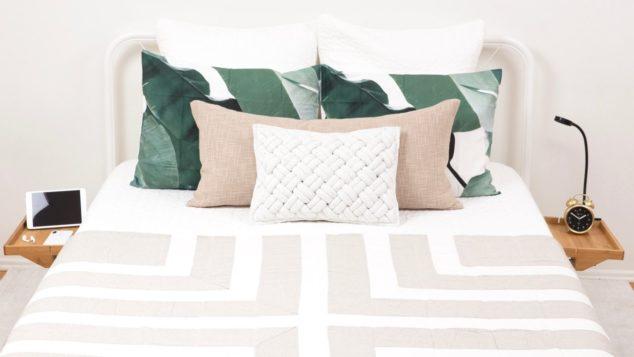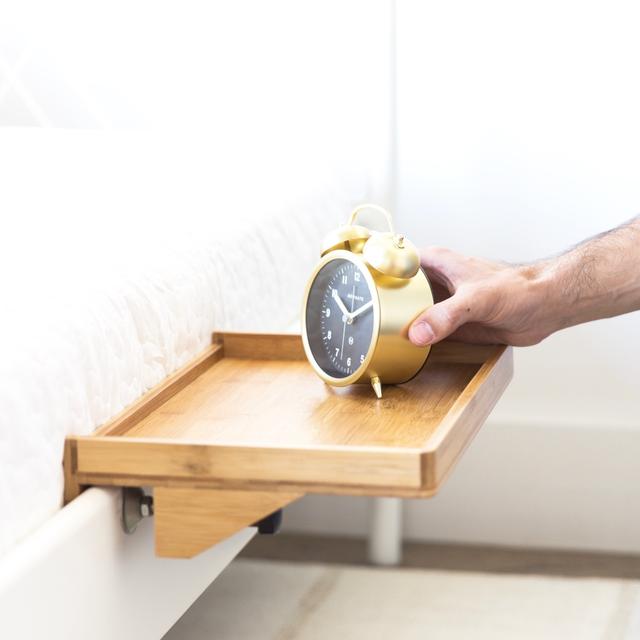
Simple Guide to Getting a Good Night’s Rest
How you are able to sleep, will directly affect your mental and physical health and the quality of your outlook throughout your waking day. If you fail to get a good rest, it can have a serious implication on your daytime energy, productivity, emotional balance, and even your disrupt your weight goals. However, there are still many of us who regularly toss and turn at night and finally picking up your phone on the bedside shelf as a sign of giving up in trying to sleep. This is a reality for many of us who are struggling to get the sleep we need. Sleep problems are not without a solution however as many experts in the field have put energy into trying to help people with these exact problems. Some of the simplest of actions can have important changes to your daytime routine and bedtime habits. This can have a profound impact on how well you sleep, leaving you feeling mentally sharp, emotionally balanced, full of energy all day long, and alert to avoid any accidents especially when operating machineries like cars. This article will present some tips and tricks to help you sleep better.
Keep the Necessities on your Bedside Shelf
One of the reason why sleeping can be quite a challenge is having to get up all the time during the night for various of reasons. The main one is having to get up and go to the bathroom, and another is by feeling parched on the middle of the night wanting a drink of water. Knowing this, it is best not to drink too much fluids an hour before going to bed but also to keep a glass of water on your bedside shelf in case you are feeling thirsty. You can also put your phone on your bedside shelf so when someone calls or an alert comes up, you won’t have to get up of the bed which makes it easier to back to sleep. Having your phone there also makes it more effective as an alarm to wake you up in the morning. As will be discussed later in this article, waking up at the right time is equally as important as the time you go to sleep.
How to Sleep Better
Trying to get a good night’s rest may feel like an impossible task and it might be easier to give up when you are wide awake at 4 in the morning. However, you have much more control over the quality of your sleep than you probably thought you could ever have. The way you feel during your waking hours often relies on how well you sleep at night and how much strength you have restored. So the help you need for any sleep difficulties can often be found in how you conduct yourself within the day or your daily routine.
There are quite plenty of unhealthy daytime habits and lifestyle choices that can have you tossing and turning at night and negatively affect your mood, brain and heart health, immune system, creativity, vitality, and even your weight. But through experimentation as some sleep experts have concluded, with the following tips, you can enjoy better sleep at night. And with this you can then finally improve your mental and physical health, and improve how you think and feel during the day so you can make most of your waking hours.
Take care of your body’s natural sleep-wake cycle
When you say that you are getting in sync with your body’s natural sleep-wake cycle, or circadian rhythm, what you really mean is trying to keep your sleep cycle as consistent as possible. This is one of the most important strategies for sleeping better and it may just be the only tip that you will need. If you keep a constant sleep-wake schedule, meaning no changing of shifts allowed, you will feel much more refreshed and energized compared to sleeping the same number of hours at different times. What is important to note here is that even if you only alter your sleep schedule by an hour or two, this can greatly affect your circadian rhythm.
As tough as it sounds, you should try to go to sleep and get up at the same time every day or at the very least make an effort of it. This means that you should go to bed, close your eyes even if you do not feel sleepy as a little shut of the eye can signal your body to rest especially if you are lying down. And in the morning, you should set your alarm by your bedside shelf, to wake you up at the same schedule everyday even if it was a holiday. Doing this can greatly help you set your body’s internal clock which is the non-salient sensory feature of the human body that allows it to figure out when is the right time to sleep. Following these simple steps can already optimize the quality of your sleep. When selecting the time of the day to sleep, you should choose a bed time when you normally feel tired, so that you don’t go back to tossing and turning. If you are getting enough sleep, it should not be too difficult for you to wake up naturally even without an alarm. And should you need an alarm clock, then you may need an earlier bedtime.
Sleeping in might not be best
This will raise a lot of eyebrows especially from hard working millennials but it might be best to avoid sleeping in on weekends. The reason for this is simple biology in the way that the more your weekend/weekday sleep schedules differ, the worse the jetlag-like symptoms you will experience throughout the week. If you feel like there is a need for you to make up for a late night, opt for a daytime nap of a few hours instead of sleeping in the next night over. This will allow your body to pay off your sleep deficiency without causing too much disturbance your circadian rhythm.
Not sleeping in is one thing, but another urge that you should also control is sleeping late the night before holidays and weekends. While one wants to enjoy the brief sigh of relief after a long week, it can also cause a distraction that can ripple throughout the next. Sleeping at the right time every night can help you keep the consistent demeanor one might need for the fast paced jobs of today.
You can nap but not too much
Napping works hand in hand with your night sleep routine and should not be ignored. However, napping too much can also cause a disruption in your sleep cycle. While napping is a great way to make up for having to stay up later than usual, if you are having trouble falling asleep or staying asleep at night, napping can make things worse. As a simple guide, you should limit naps to 15 to 20 minutes in the early afternoon and avoid taking naps too close to bedtime and your waking hour.
Your diet plays a part
Most people suffer from after dinner drowsiness and this is one of the reasons why it is difficult to keep on track with your regular sleep schedule. Whenever you get sleepy way before your bedtime, you should get off the couch and do something mildly stimulating just so you can wake yourself up for the next hour or so. Simple menial tasks such as washing the dishes, calling a friend, or getting clothes ready for the next day can help you wake up before the right time to go to sleep. If you give in to the sleepiness, the consequences is that you may wake up later in the night and have trouble getting back to sleep.

What to do during the day
While there are plenty of things that you can do to help you sleep well while you are already asleep or on your way to there, there are also some things that can help you get that good night sleep while you are still wide awake.
Control light exposure
When your eyes are exposed to blue light, the brightest of all the light strands, your body will activate and will make you more alert. This is good when you are just waking up during the day where a little alertness is welcome but later during the day, exposure to this light has to be controlled. This is easier said than done however as blue light is everywhere: the sun, your computer screens and even your phone. It might do you well to keep blue light blocking glasses beside you in bed by putting them in your bedside shelf next to your phone. This way you won’t be getting all the extra blue light from the device and from the television set if you are the type who likes going to bed with the TV on.







